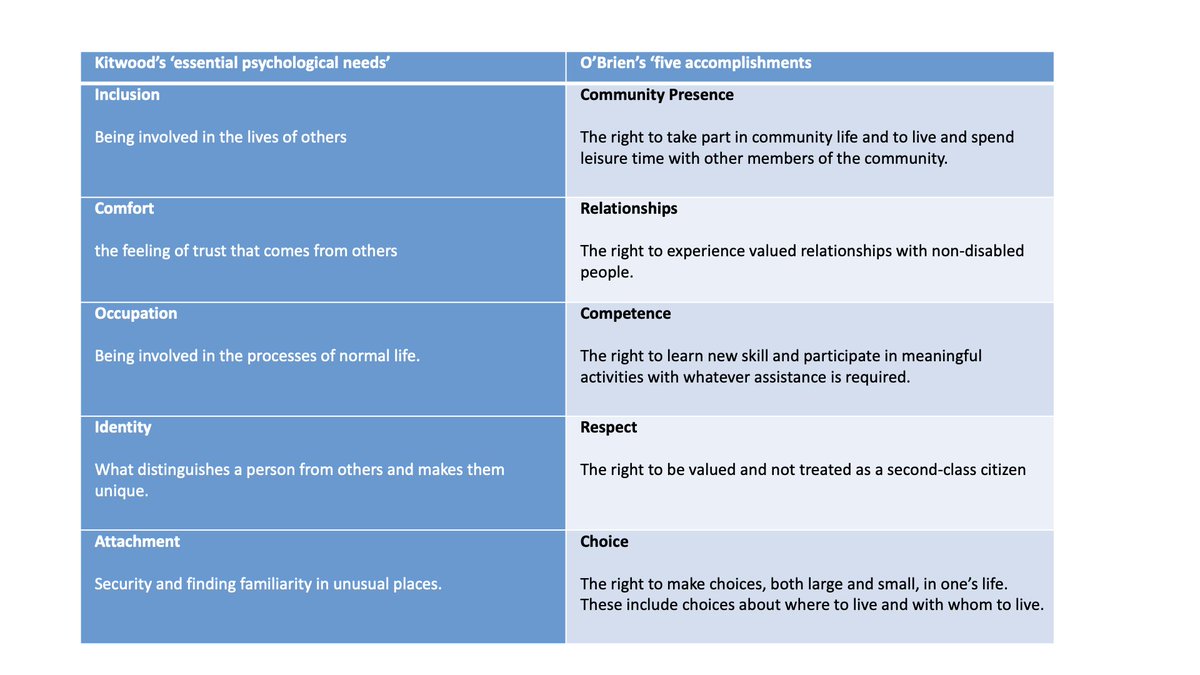
Today seems like an important moment to repost this blog, based on our extensive research & development with people who draw on support to live our lives - some basic rules when talking about social care #LivesNotBeds socialcarefuture.org.uk/want-to-help-c…
1. It's about us & people we love & care about, not beds, visits, packages, blockages, flows
2. Be about creating something good, not something less bad
3. Sell the brownie, not the ingredients - how does social care improve our lives?
2. Be about creating something good, not something less bad
3. Sell the brownie, not the ingredients - how does social care improve our lives?
4. Ignite supportive, pro-social values - avoid creating threat & insecurity, and expunge 'vulnerable' from your vocabulary - tee up self-direction, reciprocity & belonging
5. Speak of and to a 'larger us', don't invoke 'them & us'
5. Speak of and to a 'larger us', don't invoke 'them & us'
And last but not least
6. Remember: position social care as the solution, not the problem
6. Remember: position social care as the solution, not the problem
• • •
Missing some Tweet in this thread? You can try to
force a refresh






